The Best Guitar Tuners 2023: Clip On, Pedal & Handheld
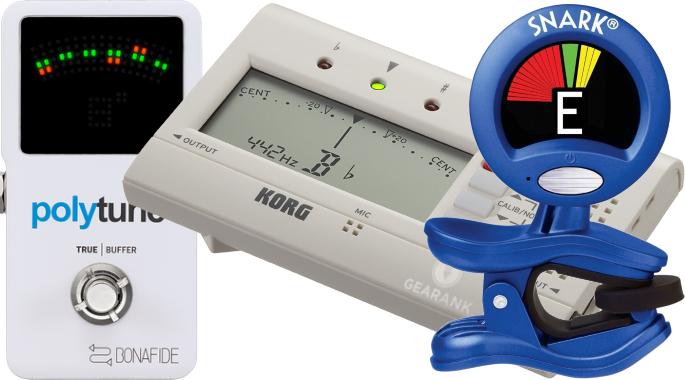
Author & Contributors
Alexander Briones
I have been writing about and researching music gear for many years, all while serving as a music director at my local church. I engage in guitar playing and singer-songwriter stints, in addition to mentoring young musicians and teaching guitar and bass.
The Best Clip On Tuners
These have become the most popular form factor for guitarists as they're small and easy to carry around with you. They also tend to be quite inexpensive compared to other types which means many guitarists often buy a couple of them at a time.
Snark SN-1X
Cons
- The plastic case becomes sticky over time
Pros
- Clear bright display
- Quick response time
The Snark SN-1X is a stripped down version of the Snark ST-2, without the built-in mic for use with other instruments. As such, it is slightly more affordable, while offering the same functionalities that you need to get your guitar in tune.
This version of the Snark also works as a chromatic tuning device, allows flat tuning, and works with a capo and Capo Chart.
It also includes a tap tempo metronome that gives you visual cues of the beat.
It doesn't have special modes for alternate tunings such as DADGAD but you can tune to those in chromatic mode.
Although I haven't experienced this problem myself, I've seen reports from some people who have been using it for more than a year saying that the plastic case becomes sticky to touch after that length of time.
If value for money is your primary concern then it's hard to find anything that beats the Snark SN-1X in this regard.
Specifications
- Tuning Accuracy: Not Provided
- Tuning Range: Not Provided
- Reference Pitch: 415Hz-466Hz calibration
- Tuning Modes: Guitar, Chromatic, Flat tuning and Transpose modes
- Display: Full color, 360° rotation
- Power Supply: CR2032 Lithium battery
- Battery Life: Not Provided
- Dimensions: 1.8" x 1.8" x 3.5"
- Weight : 1.6 ounces
| Website | Source | *Rating Value |
| YouTube | Chad Kalhagen | 98/100 |
Snark SN-5X
Cons
- Swivel screen needs to be handled carefully
Pros
- Includes a tap tempo metronome
- Chromatic - works with all stringed instruments
- Quick response
The SN-5X takes the versatility of Snark's SN series up a notch by adding compatibility with violins. This means that multi-instrumentalists will only need one tuner for guitars, bass guitars, and violin.
It carries features that are similar to the SN-1X, allowing it to work as a chromatic tuner for stringed instruments.
It also comes with a tap tempo metronome that utilizes visual cues via its built-in display, instead of ticking sounds.
One thing to watch out for with Snark clip-ons is the joint for the swivel mounted display isn't the strongest so I suggest taking care with handling - especially when clipping it on to your headstock.
The Snark SN5X is a good clip-on tuner to pick if your using both guitars and violin.
Specifications
- Tuning Accuracy: Not Provided
- Tuning Range: Not Provided
- Reference Pitch: 415Hz-466Hz calibration
- Tuning Modes: Guitar, Chromatic, Flat tuning and Transpose modes
- Display: Full color, 360° rotation
- Power Supply: CR2032 Lithium battery
- Battery Life: Not Provided
- Dimensions: 1.8" x 1.8" x 3.5"
- Weight : 1.6 ounces
Snark ST-2
Cons
- Swivel joint needs to be treated with care
Pros
- Display is nice and bright
- Has a built-in microphone - can be used with non-stringed instruments
The Snark ST-2 is a clip-on chromatic tuner that's designed for acoustic instruments, primary of which is the acoustic guitar.
It features a compact profile that has endeared the Snark brand to many players, while housing a faster chip that improves the speed and accuracy of its tuning.
In addition to its vibration sensor, it also comes with a built-in microphone, which allows it to tune other instruments that it can't clip on to, much like a handheld tuner. Note that its guitar centric design doesn't make it viable for use as a trumpet tuner, viola tuner and orchestra tuner.
Other features include a 360 degree swivel, power save, tap tempo silent metronome, and transpose tuning. One thing to note is that the swivel joint that holds the display in place can be damaged so be careful when clipping it on or removing it - although it hasn't happened to me some people say there's has broken.
Snark advises against using the ST-2 on instruments with sensitive finishes, like nitrocellulose lacquer, oil finish, polyurethane and French polish.
With its good overall market performance, the Snark ST-2 is a great tool for guitarists and multi-instrumentalists.
Specifications
- Tuning Accuracy: Not Provided
- Tuning Range: Not Provided
- Reference Pitch: 415Hz-466Hz calibration
- Tuning Modes: Guitar, Chromatic, Flat tuning and Transpose modes, Built-in Mic
- Display: Full color, 360° rotation
- Power Supply: CR2032 Lithium battery
- Battery Life: Not Provided
- Dimensions: 1.8" x 1.8" x 3.5"
- Weight : 1.27 ounces
| Website | Source | *Rating Value |
| YouTube | Bob Cieslinski | 95/100 |
TC Electronic PolyTune Clip
Cons
- Not worth the price if you don't use the Polytune feature
Pros
- Nice big and bright display
- Fast and accurate
- Has strobe mode for even greater accuracy
- Solid metal clip
The main point of difference with other clip-on tuners is that you can strum your guitar and see the tuning for each string at the same time to quickly see which ones are out of tune. Note that this feature only works for standard tuning on the clip-on this version.
It also works as a regular chromatic tuner showing one note at a time, and when used in strobe mode it has a very high accuracy of ±0.02 cents.
And while some clip-on tuners struggle with either the low or high E strings on guitar, the PolyTune Clip reads them all well.
Personally I'm happy tuning one string at a time as you can only turn one tuning peg at a time, so for me the extra cost isn't worth it, but many other guitarists disagree as you can see from the very high ratings they have given it.
That said, it does have a very good display which is bright enough to see even under stage lights. And the clip is made from metal making it more reliable than some of the cheaper ones with plastic clips.
If you're looking for a clip-on and you're interested in trying the polytune feature, then this is the one to get.
Specifications
- Tuning Accuracy: Strobe Mode: ±0.02 cent, Chromatic Mode: ±0.5 cent, Polyphonic Mode: ±1 cent
- Tuning Range: A0 (27.5 hZ) to C8 (4186 Hz)
- Reference Pitch: A4 = 435 to 445
- Tuning Modes: 1. Polyphonic, 2. Chromatic, 3. Strobe
- Display: Ultra-bright color
- Power Supply: CR2032 lithium battery
- Battery Life: Up to 18 hours
- Dimensions: 0.98" (25 mm) x 2.36" (60 mm) x 1.1" (28 mm)
- Weight: 1.13 oz (32 g)
| Website | Source | *Rating Value |
| Guitar World | priario | 100/100 |
| MusicRadar | Dave Burrluck | 60/100 |
The Best Pedal Tuners
Although clip-on tuners are all the rage these days, there are still many guitarists who prefer to have their tuner on their pedalboard. The advantages are that they mute the signal when tuning, are less susceptible to interference from any noise on stage than clip-ons, and some guitarists don't like the look of having something on their headstock while playing in front of an audience.
TC Electronic Polytune 3
Cons
- Slower response when tuning a bass guitar
Pros
- Easy to use
- Fast response
- Also works for 7-String Tuning and 5-string basses
The original Polytune went beyond what's expected from tuners, with its polyphonic tuning function, where in the pedal can detect multiple pitches so you can tune all your strings simultaneously.
The same technology is carried over with the TC Electronic PolyTune 3, with some added features that include switchable true bypass and buffered bypass via internal DIP switches.
Other features include alternate tuning modes, selectable reference pitch and a more precise strobe tuner mode.
One slight issue is that it was slower to register the note on bass than it was on regular guitar.
It comes equipped with a smart LED display that automatically adjusts brightness depending on how dark or bright the environment is.
Polyphonic tuning is a fast and convenient way of tuning that comes handy when you need to tune quickly during breaks while performing. The PolyTune 3 gives you that, along with traditional more accurate tuning modes.
Specifications
- Tuning Accuracy: ±0.5 cent (Chromatic), ±0.02 cent (Strobe)
- Tuning Range: E0 (20.6Hz)–C8 (4186Hz)
- Reference Pitch: Switchable
- Tuning Modes: Capo, Drop Tuning, PolyTune
- Display: LED
- Bypass: Switchable True Bypass or Buffered
- Power Supply: 9V Battery, Optional 9V DC Power Supply
- Battery Life: Not Specified
- Dimensions: 2.8" ( 72 mm) x 4.8" (122 mm) x 2.0" (50 mm)
- Weight: 9.6 oz (272 g)
| Website | Source | *Rating Value |
| MusicRadar | James Farmer | 100/100 |
Boss TU-3
Cons
- No alternate tuning options
- No cons for my personal use
Pros
- Simple to use
- Durable Boss compact pedal enclosure
- Clear indicators and accurate tuning
The TU-3 combines a power supply with a highly accurate tuner in a form factor that many know, trust and love. It is successor to the highly popular TU-2 with improvements where they matter most such as in the LED light brightness and in tuning accuracy down to plus/minus a cent.
When activated in its default setting, it mutes your guitar signal which I instinctively do in between songs to block out annoying electrical noise and the occasional accidental strum. I find myself tuning often in a single set and correcting strings that were knocked off tune due to bends or aggressive strumming.
As a power supply, the optional PCS-20A Parallel Daisy Chain DC Cord (Link to Amazon) allows you to power up to 7 other pedals when using the tuner with the PSA-120S power adapter (Link to Amazon). I have experimented with this setup, powering other pedals with the TU-3 via its input and output power with a Mooer 9V daisy chain power supply but I have yet to see the benefit of this configuration as opposed to just powering all my pedals straight from the daisy chain - or at least with the power supply I have that is not the official Boss one.

I've got the power
The TU-3 is primarily designed to tune electric guitars (or acoustic guitars with a pickup) and bass. It also supports 7-string guitars, and 5 or 6-string basses.
It also has a chromatic mode, allowing you to hypothetically tune any instrument compatible with a 1/4" input within its tuning range of C0 (16.35Hz)–C8 (4186Hz).
You can change the brightness of the lights by holding the left button and you scroll through the different modes with the right button.
I am delighted by how well this pedal works. Honestly, if I could only bring one pedal to the stage it would be this one.
Specifications
- Tuning Accuracy: ±1 cent
- Tuning Range: C0 (16.35Hz)–C8 (4186Hz)
- Reference Pitch: A4=436 ti 445 Hz (1 Hz step)
- Tuning Modes: Chromatic and Guitar/Bass mode (tune by string number, with support for 7-string guitars and 6-string basses)
- Display: 21-segment LED meter with brightness control
- Bypass: Buffered
- Power Supply: DC 9 V: Dry battery 6F22 (9 V) type (carbon), Dry battery 6LR61 (9 V) type (alkaline), AC Adaptor (PSA series: optional) - can supply power for up to 7 Boss pedals
- Battery Life: Not specified
- Dimensions: 2-7/8" (73 mm) x 5-1/8" (129 mm) x 2-3/8" (59 mm)
- Weight: 14 oz (390 g)
| Website | Source | *Rating Value |
| Gearank | Alden Acosta | 98/100 |
| MusicRadar | Mick Taylor | 90/100 |
Peterson StroboStomp HD
Cons
- Would have preferred a mic input at this price
Pros
- Very accurate
- Quick response
- Solid build
- Very versatile
Peterson is known for their high accuracy strobe tuners and this particular pedal stays true to their reputation.
But what sets this one apart is its emphasis on visuals, with a big display area that you can customize to your preference, like setting different tunings to specific colors.
This pedal is packed with functionality, with various open and alternate tuning presets and support for guitars with extended range (i.e. - 7-,8-,9-string guitars).
It also works with the various configurations of bass guitars and lap steel guitars.
It lets you choose between true bypass, buffered out and buffered monitor modes.
Although it is feature packed, given the price I would have liked it better if it had a mic input so it could be used with regular acoustic guitars, but this is only a minor gripe.
Multi-instrumentalists who want an eye pleasing tuner pedal, in addition to a high degree of accuracy, will appreciate the Peterson StroboStomp HD.
Specifications
- Tuning Accuracy: ±0.1 cent
- Tuning Range: C0 - A#8
- Reference Pitch: Concert A = 390Hz to 490Hz
- Tuning Modes: 25 Tuning Modes ( various configurations of guitars, bass, lap-steel, banjo, mandolin and more)
- Display: LCD screen with LED backlight
- Bypass: Switchable: True Bypass, Buffered Output, Buffered Monitor
- Power Supply: 9V Battery Included, Optional 9V DC Power Supply
- Battery Life: Up to 30 Hours (Alkaline)
- Dimensions: 2.75" (70 mm) x " (152 mm) x 2.64" (83 mm)
- Weight: 13.92 oz (395 g)
| Website | Source | *Rating Value |
| Premier Guitar | Rich Osweiler | 93.3/100 |
| YouTube | EytschPi42 | 98/100 |
The Best Handheld Tuner
Some handheld tuners have built-in stands and can also be referred to as Desktop Tuners. These types of tuners can be used with just about any type of instrument if they have built-in microphone or by plugging in directly.
Korg CA-50 Chromatic Tuner
Cons
- The virtual 'needle' can be jittery if the sound source isn't loud enough
Pros
- Very easy to use
- Has a bult-in mic - works with acoustic instruments
- Versatile - tuning range works with any instrument
The Korg CA-50 is a battery-powered handheld tuner with needle type LCD interface.
To be able to handle different instrument types, it has a wide tuning range, and it also comes with a reference tone for tuning by ear, or for ear training. It can be a double bass tuner, a classical guitar tuner, a vocal tuner, and more.
It has an adjustable calibration range (410Hz–480Hz) and a power-saving feature that automatically turns the unit off when there is no activity, allowing for up to 135 hours of use on just 2 x AAA batteries.
It comes with a built-in mic that does a good job of picking up acoustic guitar, but if the source is quiet then the virtual needle on the screen can be a bit jittery. So if you have a quiet instrument, like a soprano ukulele, you can also get a clip-on contact mic like the Korg CM200BK (Link to Amazon).
A thoughtful feature that I like is the inclusion of a small kick-stand on the back that allows you to sit it upright so you can put it on a table see the screen easily while tuning in a seated position.
If you're looking for a battery-powered tuner with a built-in mic then this is for you.
Specifications
- Tuning Accuracy: ±1 cent
- Tuning Range: A0-C8 (27.5-4186Hz)
- Reference Pitch: C4-C5 = 261.63-523.25Hz
- Tuning Modes: Meter, Sound Out
- Display: LCD
- Bypass: Buffered Bypass
- Power Supply: Not Applicable
- Battery Life: 2 x AAA (Up to 135 hours)
- Dimensions: 0.67" x 2.64" x 3.94"
- Weight: 2.86oz
Things To Consider When Buying a Guitar Tuner
- A semitone is divided up into 100 cents on a logarithmic scale. A semitone is the difference in pitch between adjacent frets on a guitar. The accuracy of tuners are measured in cents.
- The faster the tuner displays your current tuning, the quicker it is for you to make adjustments. Modern polyphonic tuning also helps you tune quickly, allowing you to silent-tune multiple strings during short breaks within songs. Strings tuned this way can be a bit imperfect though, so it is still better to take your time to fine tune.
- Most tuners are accurate enough for tuning in a live context. But when it comes to recording or working on your guitar's setup, you'll need a tuner that's as accurate as possible. Tuners measure audio by its frequency, just as each note corresponds to a specific frequency. You can see all the details in a note frequency chart.
- Because you can't plug them into a tuner, you need one that captures vibrations directly. This includes a clip-on, a soundhole tuners, or a handheld tuner with built-in or attachable mic. These are must have Guitar Accessories if you want your acoustic guitar to play in tune.
- You can use all types of tuners with these (other than soundhole tuners on electric guitars). Most guitarists in this situation prefer clip-on or pedal tuners.
- If you use custom tunings, such as DADGAD for example, then you'll either need a tuner that has specific tuning modes that cater for the alternates you use or you will generally need one that supports chromatic tuning. Some more expensive tuners have many alternate tuning pre-programmed and some will let you create user presets. Some even allows you to fine tune the pitch of your electric guitar in ways that regular tuners can't do, like going for 432 Hz tuning. This types of tuners are also ideal for tuning 12-string guitars. Some instruments come with an automatic guitar tuner via mechanized tuners. But this technology is not precise or reliable enough for more guitarists to adopt.
- With clip-on tuners, you can turn your electric guitar's volume down because they pick up the vibrations directly through your headstock. Pedal and Rackmount tuners have mute options.
- Handheld tuners typically have both built-in mics and a 1/4" input that you can plug into so they work with just about every type of musical instrument. They can be used as a piano tuner, cello tuner, violin tuner and more. Clip-ons are also quite versatile working with most fretted instruments and some even work non-fretted stringed instruments and some also with brass instruments. If you forgot your tuner but have a computer on hand, you can use an online guitar tuner or tune with your phone via guitar tuner apps.
- Learn here how to tune one step down, or let us walk you through the best method for 7 string tuning.
What Does 'Cent' Mean?
Speed
Accuracy
Acoustic Guitars Without Pickups
Electric or Acoustic Guitars With Pickups
Chromatic & Other Tuning Modes
Silent Tuning
Versatility
Best Guitar Tuner Selection Methodology
The first Edition was published in 2017.
We began by looking at the top selling and top customer rated tuner lists of the major American online music gear retailers. We then short-listed 49 tuners that cover the main types for further analysis. This process involved collecting information from over 111,900 different sources, including the most recent customer and expert reviews and forum discussions. All these data were then processed via the Gearank Algorithm to produce a Gearank Rating score out of 100 for each tuner. Finally, I selected the highest rated tuners in each category to recommend above. For more information about our methods please read How Gearank Works.
About the Author and Contributors
Here are the key people and sources involved in this guide's production - click on linked names for information about their music industry backgrounds.
Lead Author & Researcher
Alexander Briones
I have been writing about and researching music gear for many years, all while serving as a music director at my local church. I engage in guitar playing and singer-songwriter stints, in addition to mentoring young musicians and teaching guitar and bass.
Drawing from my experience in performing and recording, I teach guitar and bass and mentor young artists to be better musicians.
Contributors
Alden Acosta: Boss TU-3 Review
Jason Horton: Supplemental writing, Editing and Illustrating.
Media
Main/Top Image: Produced by Gearank.com using photographs of the TC Electronic Polytune 3, Korg CA-50 and Snark SN-1X.
The individual product images were sourced from websites, promotional materials or supporting documentation provided by their respective manufacturers except for the Boss TU-3 Power photograph which was taken by Alden Acosta.



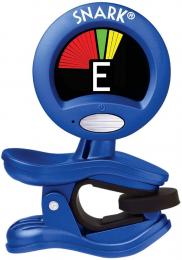
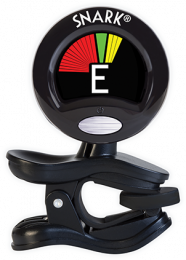
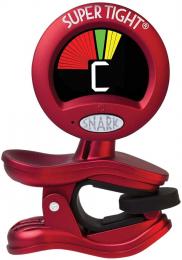
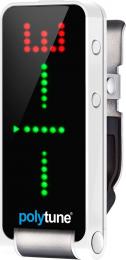
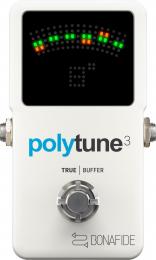
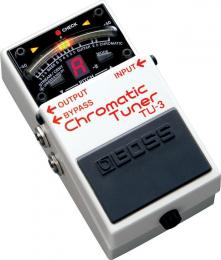
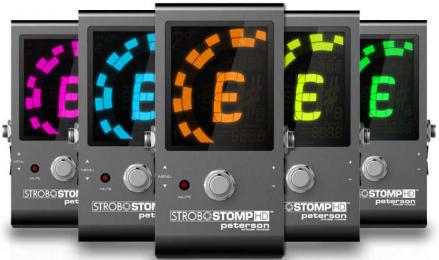
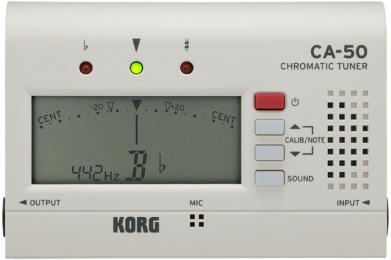
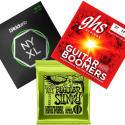
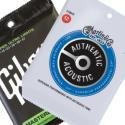
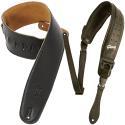
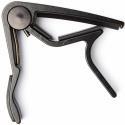
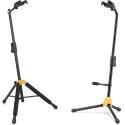
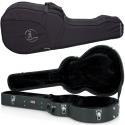
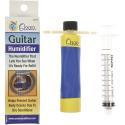
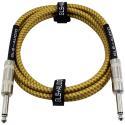

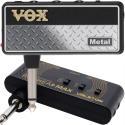

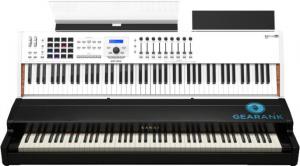
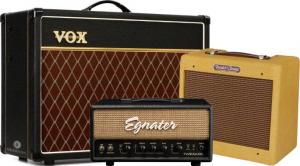
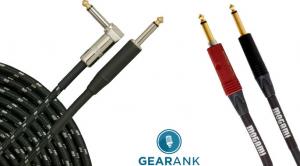
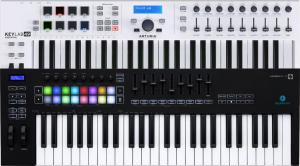
Comments
We have removed the Korg PB05
Submitted by Jason Horton on
We have removed the Korg PB05 Pitchblack Pro Rackmount Tuner from the recommended list above due to it having been discontinued.
As a result of publishing our
Submitted by Jason Horton on
As a result of publishing our July 2022 Edition, the Snark ST-8 came off the recommended list above.
Publication of our September
Submitted by Jason Horton on
Publication of our September 2021 Edition resulted in the following tuners coming off the recommended list above:
Our November 2020 update
Submitted by Jason Horton on
Our November 2020 update resulted in the following tuners coming off the recommended list above, but you can still see our analysis of them:
The following tuners were
Submitted by Jason Horton on
The following tuners were removed from our recommended list due to being discontinued, but you can still read our analysis of them:
Today we removed the
Submitted by Jason Horton on
Today we removed the following tuner from the recommended list above due to a lack of availability: TC Electronic Polytune 2 Pedal Tuner
As a result of the April 2018
Submitted by Jason Horton on
As a result of the April 2018 update of this category the following guitar tuners came off our recommended list above:
Would you rate the newer TC
Submitted by Dforce (not verified) on
Would you rate the newer TC Electronic PolyTune 3 higher than the the Boss TU-3?
We have recently rated the
Submitted by Jason Horton on
We have recently rated the PolyTune 3 and you can see its ratings in the Music Gear Database.
We haven't rated the PolyTune
Submitted by Jason Horton on
We haven't rated the PolyTune 3 yet so I can't say, I can say it's been getting good reviews so far.